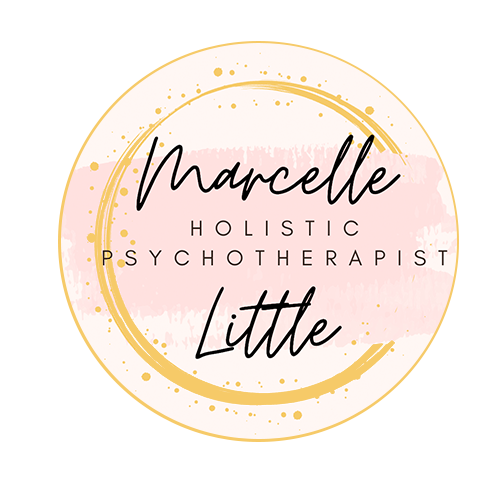Mindfulness Techniques to Combat People Pleasing Tendencies
For Individuals Navigating Anxiety, Women's Issues, Life Transitions, and Relationships in the San Francisco Bay Area & Los Angeles
People-pleasing can quietly erode your well-being, leaving you feeling overwhelmed, resentful, and disconnected from yourself. If you’re an individual navigating anxiety in relationships, women's issues, major life transitions, or struggling with self-worth, these behaviors might be more than just habit—they could be survival strategies rooted in trauma.
As a psychotherapist serving individuals in the San Francisco Bay Area and Los Angeles, I often see clients who are outwardly successful but inwardly exhausted from over-functioning in others’ lives while under-functioning in their own. This tendency to prioritize others’ needs over your own may have once kept you safe—but now, it’s holding you back. In this blog, I’ll explore how mindfulness can help you break the cycle of people-pleasing and reclaim your voice, energy, and authenticity.
Understanding the Origins of People-Pleasing
People-pleasing is more than a desire to be liked. At its core, it's a pattern of centering your life around someone else’s—often at the cost of your own needs, goals, and emotional health. In therapy, we often define this as over-functioning in someone else’s life and under-functioning in your own.
This behavior can stem from:
Childhood environments where love and acceptance were conditional
A need to stay out of conflict or danger, especially in households with emotional unpredictability
Internalized messages that being “good” or “easy” to be around equals safety
While often overlapping with codependency, not all people-pleasers are codependent. But both tendencies share roots in emotional neglect, a fear of abandonment, and a longing to feel worthy. Recognizing where these behaviors come from is the first step to changing them.
The Role of Mindfulness in Healing People-Pleasing
Mindfulness is a powerful tool that helps us slow down, tune in, and respond rather than react. By observing your thoughts and emotions without judgment, you begin to recognize when your choices are rooted in fear rather than authenticity.
As a licensed therapist specializing in anxiety, people-pleasing, women's issues, and life transitions in California, I integrate mindfulness-based techniques into therapy to help clients return to their inner truth.
Key Mindfulness Tools for Self-Discovery:
Meditation: Practice 5–10 minutes daily. Notice thoughts like “Will they be upset if I say no?” and bring your attention back to your breath. This builds awareness of your people-pleasing patterns.
Journaling: Ask yourself, What do I truly want? or Where did I learn I had to be nice to be safe? Writing fosters self-reflection and clarity.
Body Scans: Tune into physical sensations when someone asks you for something. Tension might signal a boundary is being crossed.
Practicing Assertiveness with Mindfulness
Assertiveness doesn’t mean confrontation—it means honoring your needs with clarity and respect. For people-pleasers, this can feel uncomfortable at first, especially if you’ve spent years putting others first. Mindfulness helps you pause before responding, making room for conscious choices.
Try This:
Check in with your body before saying yes. Do you feel tightness, pressure, or a pit in your stomach?
Practice 'No' with compassion. “I’m not available for that right now” is a complete sentence.
Visualize a grounded response during meditation. Imagine yourself speaking your truth calmly and clearly.
These practices empower you to stand in your truth—without guilt.
Mindful Boundary Setting
Boundaries are how you protect your time, energy, and emotional health. Many individuals, especially those socialized to nurture, struggle to set boundaries without feeling selfish. Mindfulness helps by encouraging intentional reflection before agreeing to anything.
Techniques to Support Boundary Work:
The Mindful Pause: Breathe. Reflect. Respond. Give yourself permission to say, “Let me think about that,” instead of defaulting to yes.
Use 'I' Statements: “I need time to rest tonight.” This centers your needs while reducing defensiveness.
Notice Resentment: It often signals a boundary that needs attention.
As a therapist working with individuals in both Los Angeles and the San Francisco Bay Area, I see time and again how boundaries, when rooted in self-awareness, create space for healthier, more balanced relationships.
Creating a Mindfulness Routine That Supports You
Healing from people-pleasing requires consistency and compassion. You don’t need hours of free time to benefit from mindfulness—just moments of intention throughout your day.
Simple Ways to Integrate Mindfulness:
Morning Ritual: Begin with 5 deep breaths or a short meditation before checking your phone.
Mindful Movement: Walking, stretching, or yoga can help you stay in your body and out of your anxious mind.
End-of-Day Journaling: Reflect on where you honored your truth—and where you struggled.
These small shifts help you stay grounded in your own life, rather than orbiting someone else’s.
Embrace Your Authentic Self
Letting go of people-pleasing isn’t about becoming selfish—it’s about becoming whole. You deserve to take up space in your own life, to have needs, to say no, and to pursue what lights you up. With mindfulness, you can unlearn old survival patterns and step into a more empowered, authentic way of living.
If you’re an individual in Los Angeles or the San Francisco Bay Area looking for a therapist who understands the complexities of people-pleasing, anxiety in relationships, and major life transitions, I’m here to support you.
Ready to Break the Cycle?
Reach out to schedule a consultation and begin your journey toward self-worth, confidence, and calm.

